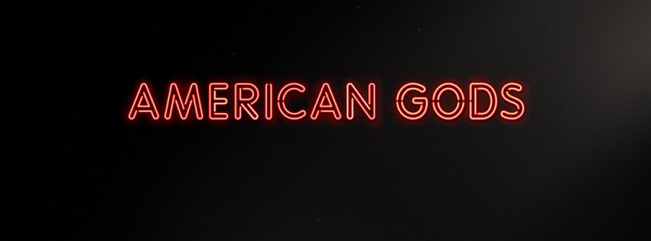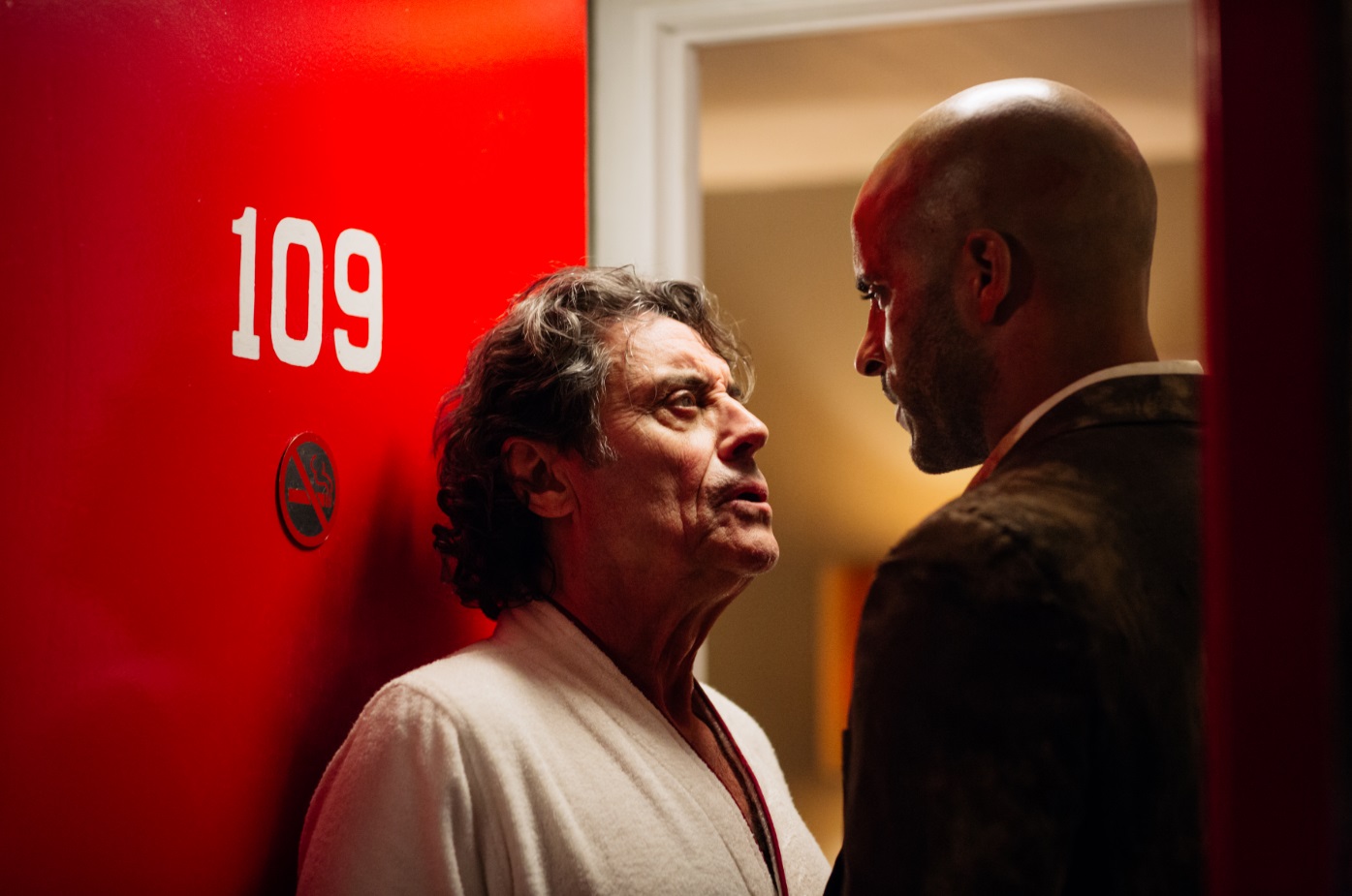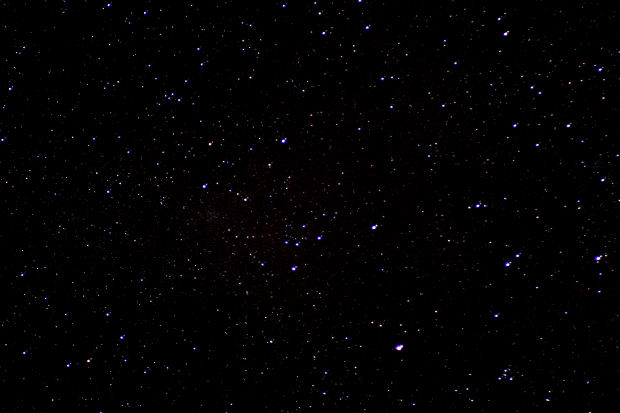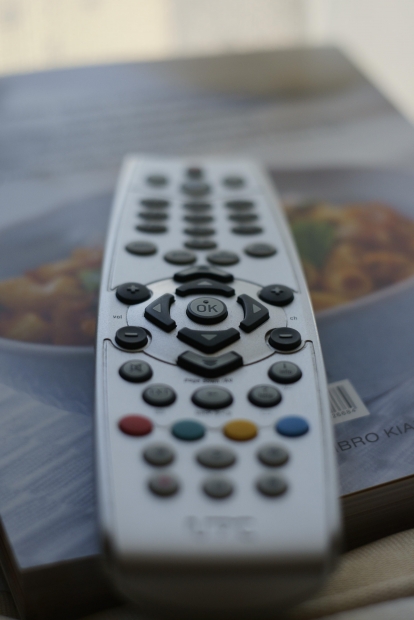Re: American Gods Season 1 Episode 2: I usually attempt to keep these concise and focused. This week’s review is longer than most reviews will be because in this episode, there is much to be discussed on race in America and the story. In my opinion, to comb that over would be an unforgivable injustice.
And if you missed it, here is last week’s review: Analysis: Neil Gaiman’s ‘American Gods’ on STARZ – Episode 1
American Gods Season 1 Episode 2: A Heroic Cockblock
So… I’m not known to (ever) start directly on task, so let’s just start again with an intriguing in-the-background fact that has both amused and impressed me all week.
In our previous Omnipotence (neé “Review”), I closed by noting the importance of Neil Gaiman functioning as more than a consultant for the show’s production. As a refresher, he is one of quite a few executive producers (five or six if I counted right, but TBH can’t be arsed to open the show again just for a correct number). Anyway, as an executive producer, he maintains notably more control over outcomes for the show than a consultant could ever dream of.
I was unaware that what I considered to be last week’s review’s somewhat weak closer would become hilarious but relevant foreshadowing on Neil’s behalf. But then the following headlines appeared on my desk this week:
- Neil Gaiman on why he asked American Gods to cut a blowjob scene
- Fellati-Hell-No! ‘American Gods’ Creator Neil Gaiman Asked Bryan Fuller To Cut A Graveyard Blowjob Scene, Because Ew
It turns out that at the hands of showrunners Brian Fuller and Michael Green, the expanded Audrey and Shadow in the graveyard scene from last week was meant to actually turn into a full-on sex scene: Audrey was literally going to give new meaning to HEADstones. Neil, in that A.V. Club interview:
“I’m like, ‘Okay, guys, if you do that, I will go and step in front of a bus, and I will leave a suicide note explaining exactly why this is your fault.’ They were like, ‘You really feel that strongly?’ I was like, ‘Yeah, I really do.”
Right! Of course he wouldn’t want a blowjob, nutters. He was appropriately wrecked from the entire situation of cheating best friend-spouse dying mid-BJ. That does not equate to a blowjob from an equally broken not to mention heavily drugged woman in the same situation. Also, oh the consent issues that would arise.
All I know is that I personally would have lost all faith in the show if that had happened. Would’ve just called it and written it off as another untimely loss for the poor Book to Screen family.
So Cheers, Neil. Cheers.
Poignant, Pivotal Anansi
In this second episode of American Gods, we’ve opened with another Somewhere in America sub-story. When I realized this is a dark, hopeless slave ship, I assumed we would be heading in the direction of the slave twins mentioned in the book’s Somewhere in America. Instead, the scene entered another direction entirely and admittedly, one that I was not expecting.
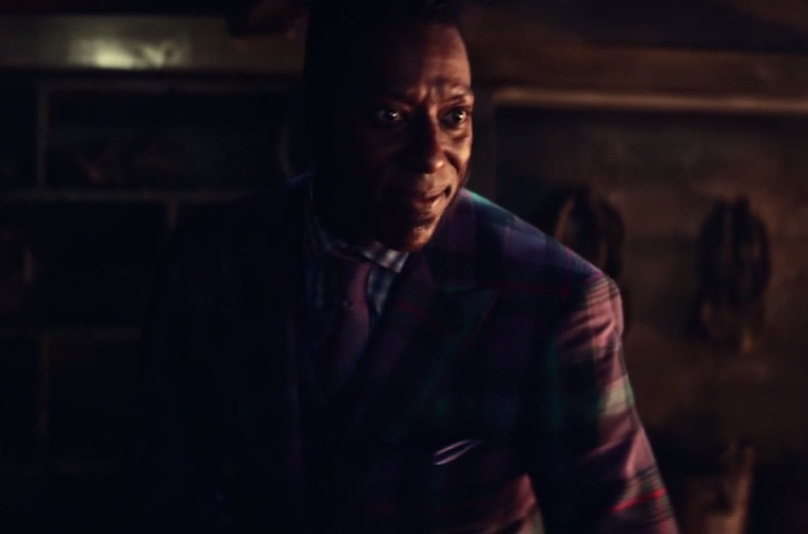
An appealing, brilliant, fiery black man depicted in his thirties or forties, in his trademark plaid suit, Anansi is summoned by the prayer of a slave on the ship. Anansi. We finally meet our beloved spider god Anansi, but on terms unique and updated for the show.
This updated Anansi is fueled by furious precognition of the (continuing) atrocities of racial injustice in America and has a critical, gloriously articulated narrative that he imparts to the slaves.
This is not book Anansi. This is not a chortling, amusing, story-peddling, wise old man.
But also, it is not NOT Anansi. It is vital to remember gods are not one solitary manifestation, as well. This representation is updated Anansi and needed Anansi. This is 2017 Anansi, this is #BlackLivesMatter Anansi, this is riots Anansi. This is “mainstream” America finally acknowledging the centuries-long supplanted cries of injustice and unspeakable loss.
As I mentioned in the first review, to fully appreciate American Gods on screen, we have to understand material has to be updated for what is basically the “16 Years Later” edition. Did racial issues not exist 16 years ago? Yeah, of course they did, but now we have a new level of uprising, cognizance, and active forces fighting against racial injustice which didn’t exist in such a riotous capacity in 2001.
This Anansi is today. If you weren’t shaken or moved by this Anansi, maybe you aren’t paying attention.
WHAT an introduction. His progression is likely to be riveting.
Identity of a Shadow
Anansi isn’t the only 2017 representation of racial awareness: another crucial “update” is Shadow’s own racial construct.
It should be noted that in the book, while Shadow is in prison, a prison guard crudely and casually asks him if he has “(n-word) blood in him.”
As mentioned, Shadow was in prison when the insult occurred, and prison in America, which is not only now widely monetized and capitalized, is a hugely imbalanced system of repression for people of color (POC). The fact that in middle America, a non-POC guard was allowed to casually and deeply insult an inmate with no reprimand is true to America. And this story, regardless of medium, is not only meant to be an unveiling of gods, but an accurate portrait of America.
I’ve had a few concerned and lively but ultimately productive conversations with friends about interpretations about why Shadow has no identifiable race in the book. An active concern was that this is a white author trying to portray the experience of a POC without being a POC. That would, for sure, be a bad thing.
And I need to pause here to, in advance, acknowledge that it is possible I am blinded or heavily biased because 1.) I am human and 2.) for a lot of emotional reasons, this book has helped me stay sane amongst insanity, so I am likely to see with bewildered, enchanted eyes. I am also not a POC and I have not had the experiences of POC. It would be an insult to suggest I have any idea what it’s like to be a POC in America, so I can’t comment from that perspective.
But the reason I don’t really think that this argument is the case is that every time I re-read the book, I see the doubt and unknowing as a greater, integral part of Shadow’s identity and, as those that have read the book know, kinda one of the plots.
And when asked, whether by a prison guard or another POC character who we have yet to meet (in the show) whether he is black or Native American or “what he is,” every time, he responds with a variant of “I don’t know.” Especially in the book, there is a consistent, constant theme about Shadow not knowing much about himself. I think that he is meant to feel like he doesn’t belong anywhere in an extensively isolating way that begins even in his childhood and is unchanging from what we know of his adult life.
Without giving away spoilers, I will say that there is a resolution to this where Shadow does understand his origins and, as you’ll see, it’s hard for him to be similar to other people period, regardless of race, for this explosive revelation.
But for now, I digress.
What we do know is that in 2017, Shadow is definitely black.
We establish that he is black when Czernobog point-blank asks if he is and Shadow boldly and preparedly asks if “that’ll be a problem.” There’s even an unexpected “knowingness” from the Eastern European god, noting that when he was in Russia, he was black too, but he apparently re-manifested himself as white when he came to America, implying the difficulty of being black in America:
“Me dark, like you. I was like the black man over there, as against my brother, the white. Everyone thought he must be the good one. So I became me.”
Shadow’s confirmation of his blackness is another update from the original story. In a way, I believe this affirmation is to function as growth from the book. The show took the book’s “unknowing” and transformed Shadow to know at least part of who he is. In current America, having a confirmed (part of his) identity emphasizes that his narrative is as important to America as anyone else’s.
But not only is Shadow affirmed as being black, he is later LYNCHED in disturbing visuals by The Children (Tech Boy’s creations). Book Shadow only got the shit kicked out of him, but film Shadow was literally and violently beaten and hanged from a tree. And it was horrifying to watch, but definitely feels like commentary to me.
Continued Performances
Let’s also discuss what’s continuing to be astounding.
I’ve noticed again and again that the shots and angles in the show are cinematically impressive and contain the same whimsical but realistic magic wrought by Neil’s details and insight in the book. A few examples:
- After Shadow packs up his house, Wednesday is revealed by the moving truck
- A remarkable close up of blood and soap, similar shots with food cooking
- Wednesday’s dandelion picking followed by high-flying fly-away seeds soaring through the sky and lightning (I believe Tori Amos would call this a “lightweight lightning seed.”)
- A crow casting a shadow over on an aerial shot of the car.
We aren’t only bound by these aesthetics, though.
Ricky Whittle’s performance is still primo. He balances the reservedness of Shadow with circus of emotions Shadow is forced to contend with. In two words, his acting is relatable (and) masterful.
I still can’t get over Ian MacShane as Wednesday, either. He is stubborn, inappropriate, frustrating, bewildering and amusing, all at once. So… he’s perfect. AND can I remind those playing the home game that he is English? Yeah, he’s faking that American accent. And better than my real American accent, at that.
Laura (Emily Browning) has made a debut other than being a corpse in a casket, and thus far appears to be another winning casting decision. She’s not had large enough roles to extensively comment on, but there is obvious promise. The same can be said for the beloved Gillian Anderson’s role as Media. Her Lucy Ricardo transfiguration was pointed and functionally pivotal. I have no doubts both will be assets to the story.
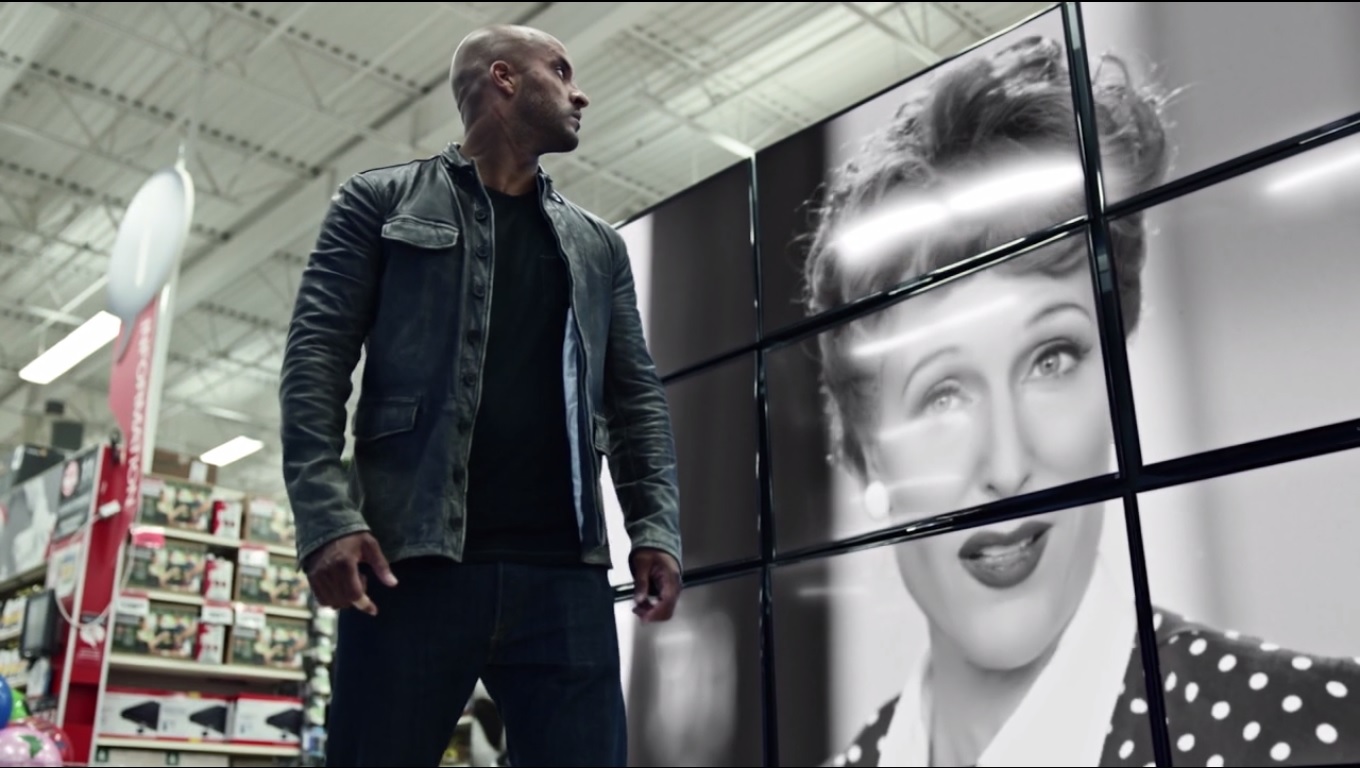
Bilquis’s (Yetide Badaki) role in the show is extensive compared to the book but captivating. Thus far, she’s uninhibited and sensational with an unrivaled portrayal of otherworldiness.
But we also have a continuation of exceptional sets and scenes. Another scene that went precisely as we could have hoped was the introduction of the Eastern European gods: Czernobog and the three Zoryas. Set design did a magnificent interpretation of the run down Chicago apartment, even down to the filthy, useless wallpaper. They missed a used condom, though.
No, I’m just kidding. I don’t need to see that. Pass.
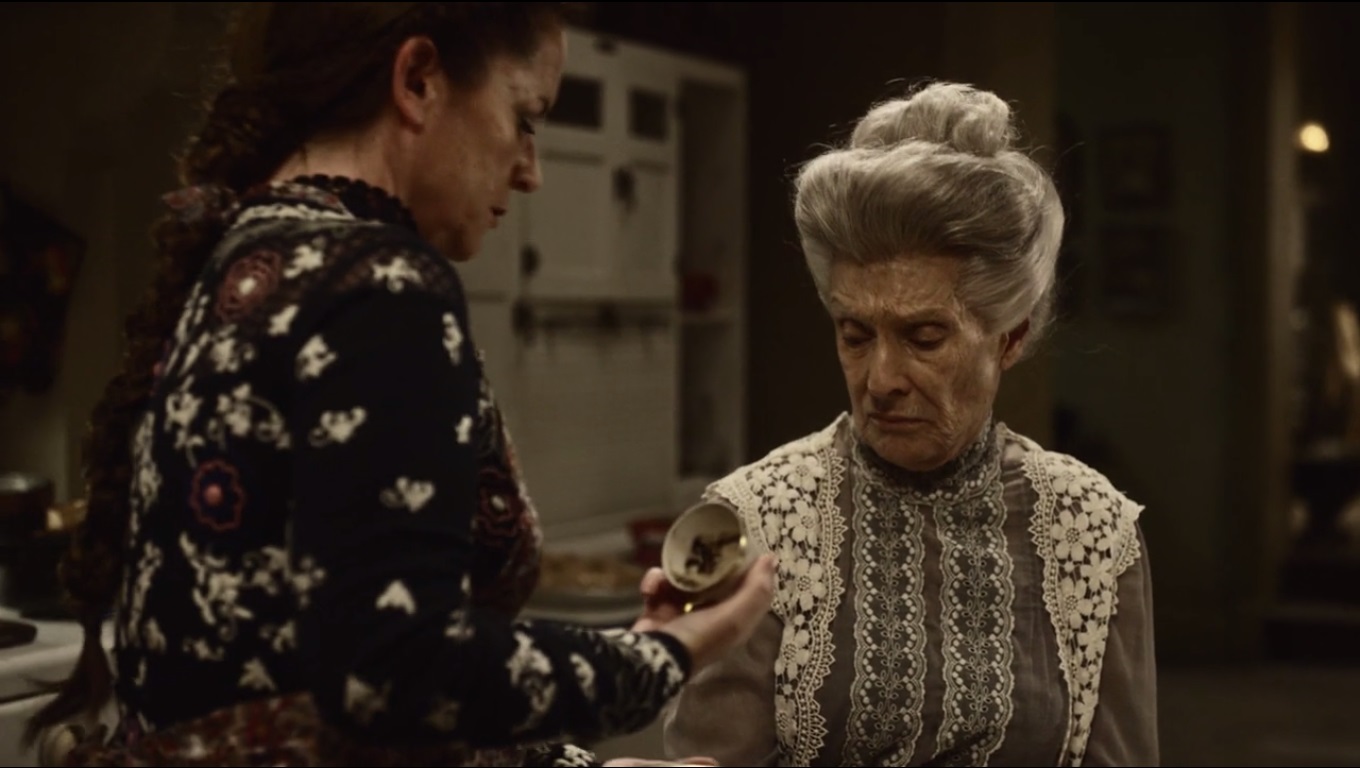
Czernobog (Peter Stormare) and the two Zoryas (eldest Zorya Cloris Leachman and middle Zorya Martha Kelly) we met were also a delightful fit for the roles. Admittedly, I am interested to see where the middle Zorya will take us, as her role departs from the book. In the book, she’s actually quite similar to the oldest Zorya. Thus far, all we know about her is that she doesn’t talk much and enjoys romance novels. My favorite Zorya has yet to appear on screen, but I’ll be interested to see her development as I always had problems picturing her.
I guess my only real contention was why is Czernobog alone with a single cow in the middle of an empty field? Symbolism, I’m guessing, but still a valid question.
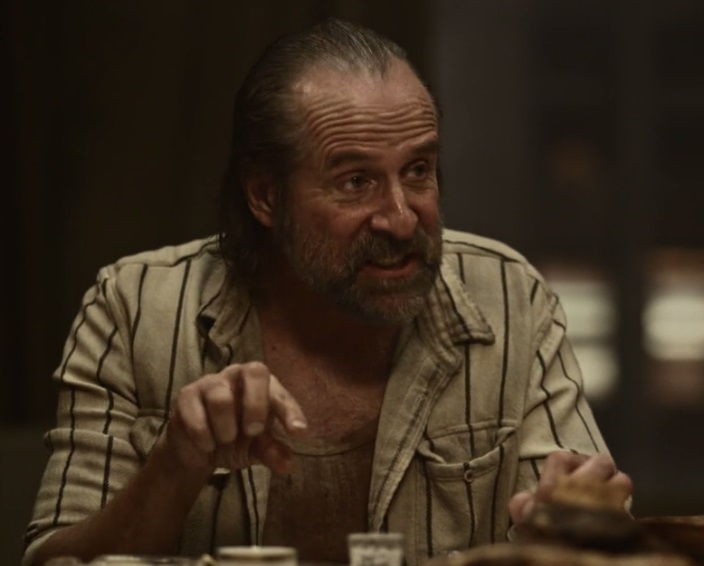
Evolution
Updates to 2017 American Gods not only improve the story, but have somehow answered questions I’ve pondered when figuring out how the hell some aspects of 2001 to 2017 would translate for matters such as cellphones, since they’re not a part of the book. Some more bulleted points for your consideration on how they’ve been handled and timelines updated:
- Shadow buys cellphones and Wednesday throws both Shadow’s phone and purchased phone out the window of the car
- Bilquis is now depicted as bisexual, as she has been “consuming” women, as well
- Wednesday has Shadow buy maps and can be seen highlighting the maps as Shadow and Czernobog play checkers. You know, because GPS is Tech
- Media talks about Tech takeover with updated technologies like 3D printers and subdermal, time-release insulin
- A dick pic. That’s right, 2017 American Gods appropriately utilized a dick pic. … and that’s a sentence I’m not likely to use ever again. Anyway, Shadow finds the pic when he goes through Laura’s phone
But despite all of these fascinating, thought-out updates, the book’s integrity is still maintained as much as possible. I was unrealistically elated to see that the “Hey, wanna see Lucy’s tits?” line was still intact, which always makes me laugh. Many of Wednesday’s most interesting, most revealing quips are still alive in the show, including comparing breasts and breast veins to a “good cheese.”
One of my favorite aspects of the show is the constant foreshadowing. Some of these clues are deeply hidden, some are obvious. Relentless and artistic. I won’t give them away, but listen to what’s being said and watch what is happening and you’ll find more to the story.
And if you haven’t read the book, I suggest you do, but it’s also okay if you can’t. But as confusing as this all seems, it will come together, so hang in there.
In closing, a few grumps. I’m hoping I’m not being blinded by my fondness for the story, but I still have very few. Bilquis’ sex scenes are a bit awkward with some of the camera angles, but let’s be real: how do you film someone consuming via vulva and vagina? This is uncharted territory, so it’s hard to be super annoyed about it. It also took me a while to understand who the hell awkward floating space sex man was, but maybe I’m dense. And the opening song still has not grown on me.
Friends, thanks for hanging in there. There’s a lot to think about based on this episode alone. American Gods is not a lofty, easy-going show, but has what I consider to be payoffs well worth the wait. Anyway, here’s Neil talking about the trip across America I’ve mentioned.

